Tankless vs Tank Water Heater: Which is Right for You?
When selecting a water heater for your home, you have two main options: a tank or a tankless model. Let's explore both types and their key considerations, such as cost-effectiveness, maintenance, installation, and lifespan. Armed with this information, you'll be better equipped to make an informed decision. And remember, if you have any further questions, don't hesitate to ask!

What is a storage tank water heater and how it works?
Storage tank water heaters are a popular choice for residential and commercial settings. They work by storing water in a tank and heating it as necessary. The tank is equipped with heating elements or burners that raise the temperature of the water, which can then be accessed through faucets and other outlets. These tanks are insulated to reduce heat loss and keep the water at the desired temperature. Although tankless water heaters have gained popularity, storage tank water heaters continue to be a dependable and cost-effective option for many individuals.

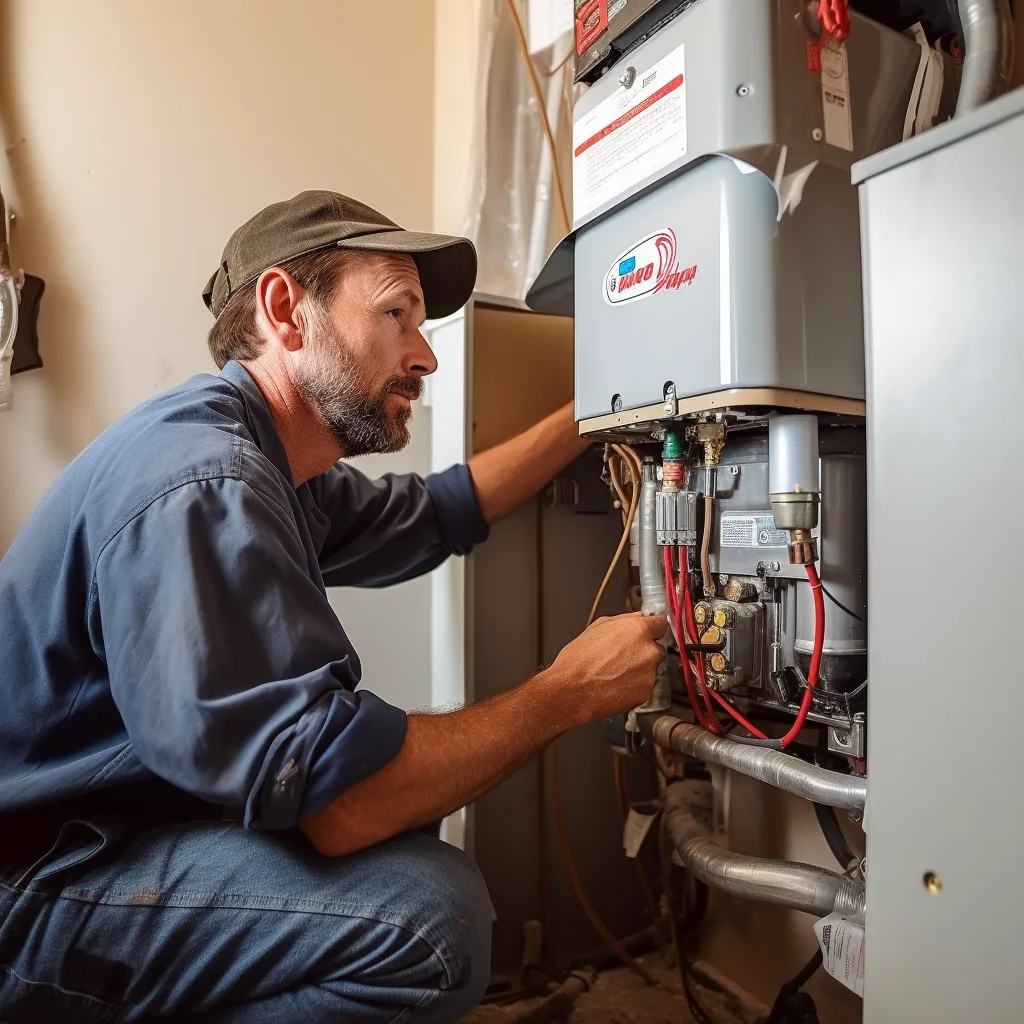
Benefits of a tank water heater
Tank water heaters offer many benefits:
Cost-effective alternative: Storage tank water heaters have lower upfront acquisition and installation costs compared to tankless models.
Reliable hot water supply: The larger storage capacity of storage tank water heaters ensures a continuous supply of hot water for homeowners.
Enhanced reliability: Storage tank water heaters tend to experience fewer malfunctions compared to tankless models, providing a reliable hot water solution.
Lower maintenance costs: With lower maintenance requirements, storage tank water heaters offer potential savings on repair expenses over time.

What are the drawbacks of a tank water heater?
Tank water heaters come with a few drawbacks too:
Space requirements: Tank water heaters require more space, which can be a disadvantage in homes with limited space availability.
Energy efficiency: Older models of tank water heaters are typically less energy efficient, leading to higher utility bills over time.
Limited lifespan: Tank water heaters generally have a lifespan of 8-12 years, while tankless systems can last up to 20 years, making tankless heaters a more durable option.
Inconvenience of running out of hot water: When the hot water in the tank is depleted, it takes time to reheat, causing inconvenience for homes with high hot water usage or multiple users.


What is a tankless water heater and how does it work?
Tankless hot water heaters provide an ideal solution for on-demand hot water. They operate by heating water as it flows through the unit, eliminating the need for a storage tank. This on-demand heating process ensures a continuous supply of hot water without the limitations of a storage tank. Tankless water heaters are known for their energy efficiency and space-saving design, making them a popular choice for homeowners seeking convenience and efficiency.
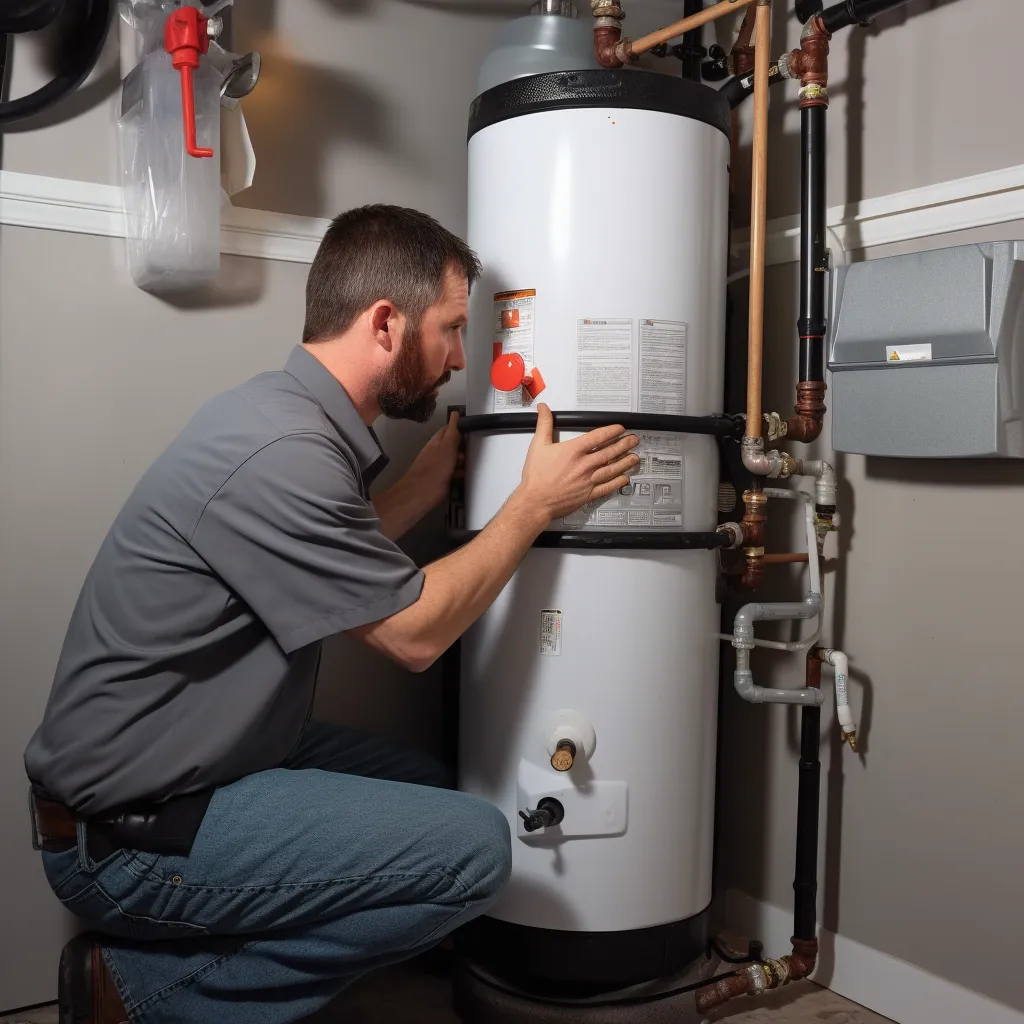
What are the benefits of a tankless water heater?
Tankless water heaters have gained popularity among homeowners nationwide due to their numerous benefits, including:
Energy efficiency: Tankless water heaters are more energy-efficient compared to traditional storage tank models, as they only heat water on demand, eliminating standby heat loss.
Endless hot water supply: With a tankless water heater, you can enjoy a continuous supply of hot water without worrying about running out during peak usage times.
Space-saving design: Tankless water heaters are compact and wall-mounted, freeing up valuable space in your home.
Longer lifespan: Tankless water heaters have a longer lifespan than traditional models, with an average life expectancy of 20 years or more.
Reduced risk of water damage: Since tankless water heaters don't store water in a tank, there is a lower risk of leaks or water damage compared to storage tank models.
Greater control and customization: Tankless water heaters often come with advanced features like temperature control and multiple settings, allowing you to customize your hot water experience.
Eco-friendliness: Tankless water heaters are considered more environmentally friendly due to their energy efficiency and reduced water consumption.
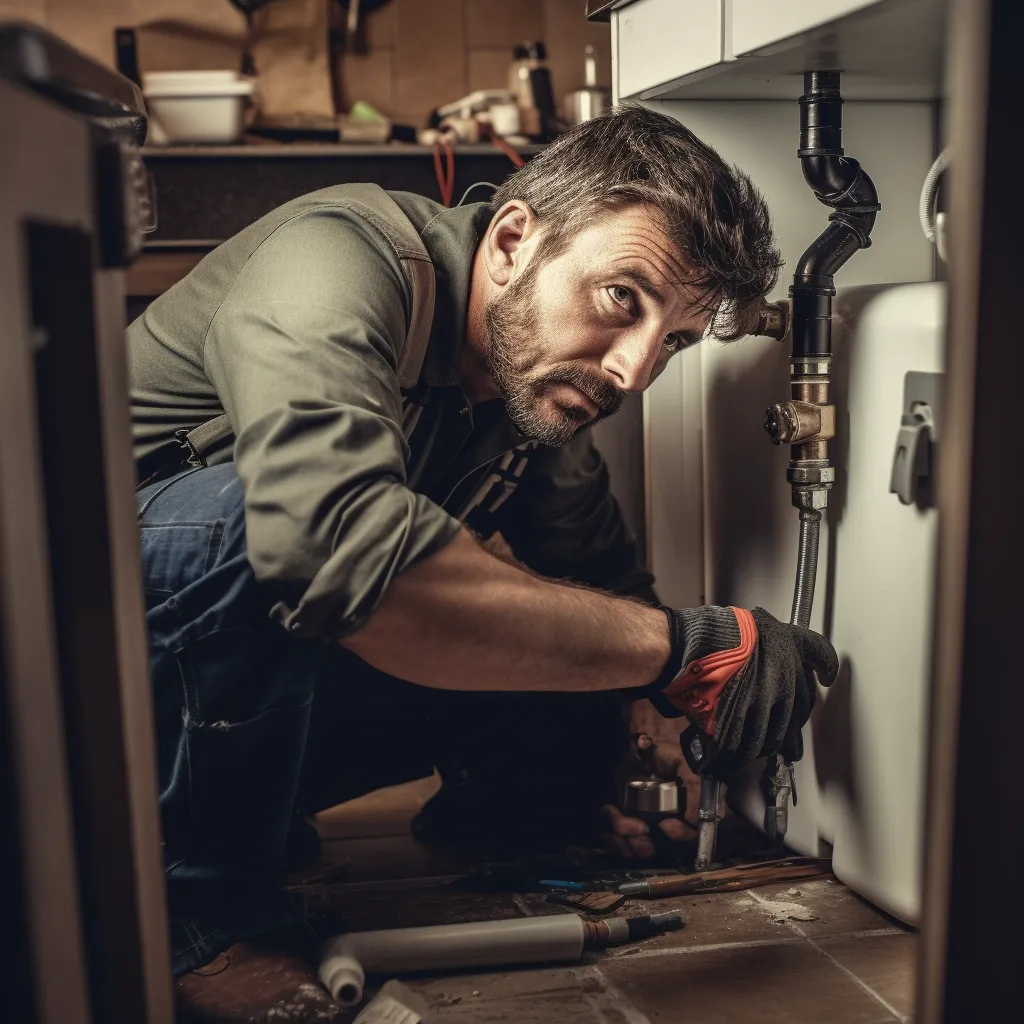
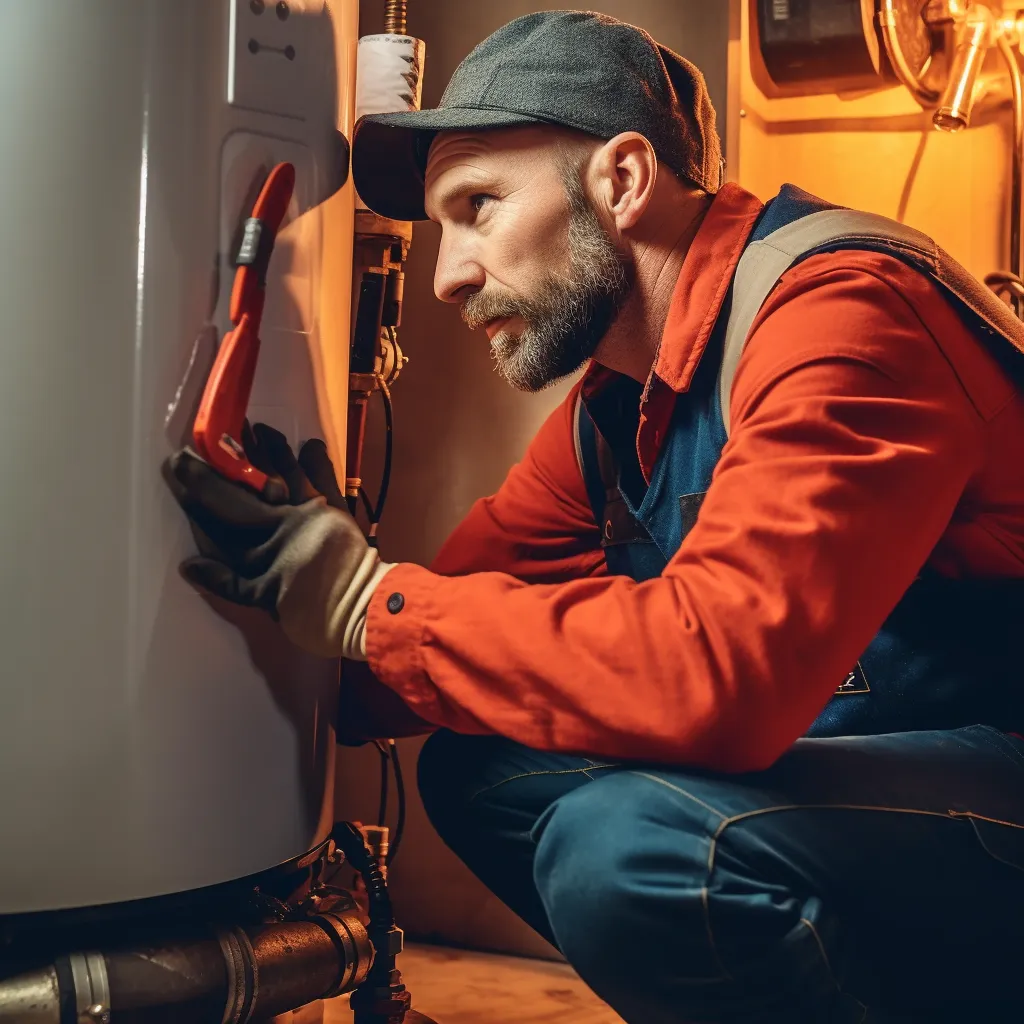
What are the disadvantages of a tankless water heater?
Tankless water heaters come with a few downsides:
Higher upfront cost compared to traditional tank water heaters.
Potential limitations on flow rate, especially when multiple hot water outlets are used simultaneously.
Specialized installation and maintenance requirements, often requiring professional assistance.
Possibility of experiencing the "cold water sandwich effect," a brief burst of cold water between hot water usage.
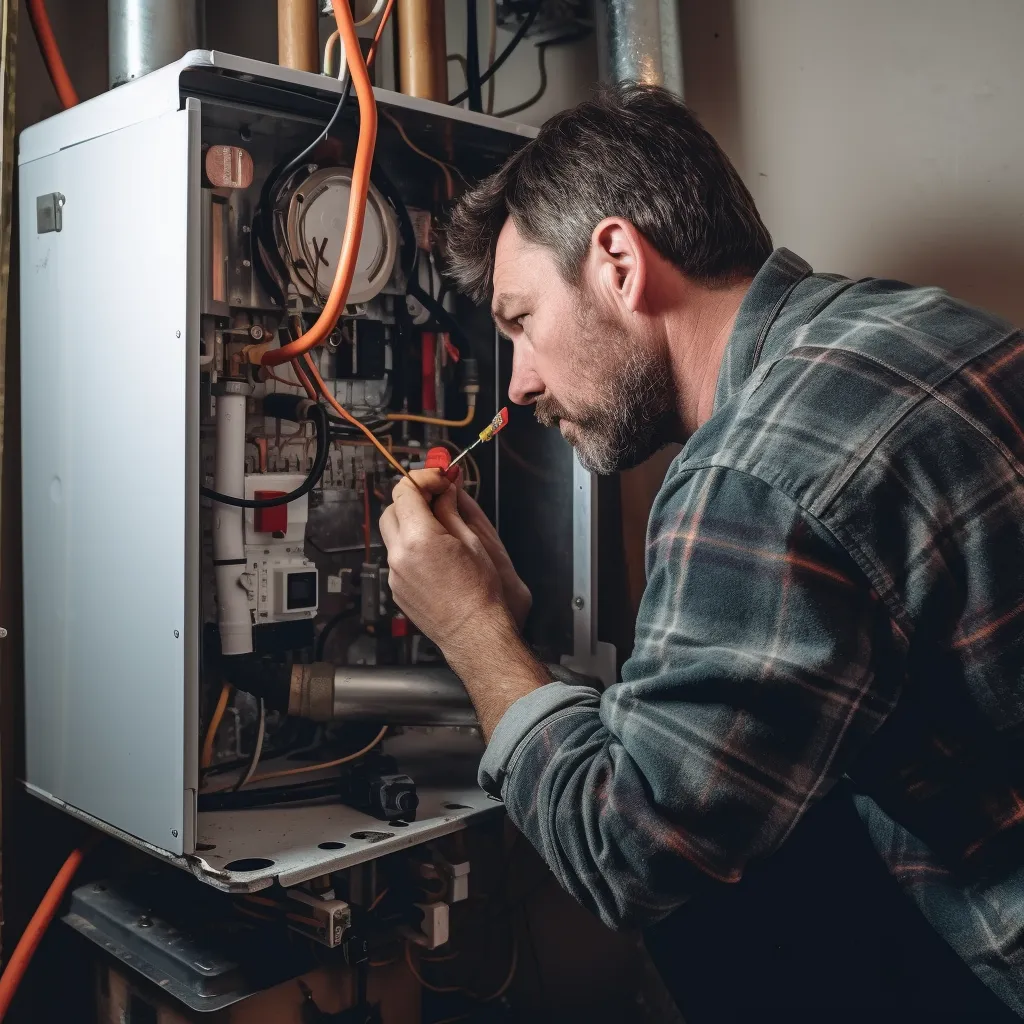
Are storage tank water heaters energy-efficient?
Traditional water heaters with storage tanks have improved in terms of energy efficiency, thanks to enhanced insulation and heating features. Although they may not be the most environmentally friendly option, they continue to be a reliable and practical choice for many households.

Are tankless water heaters energy-efficient?
Tankless water heaters are popular due to their energy-saving properties and affordability. They can be up to 34% more energy-efficient than traditional tank-based models, as they only heat water on demand. This reduces energy consumption and costs in the long run, making them a practical choice for homeowners.

Cost to buy and install
a tank water heater
Tankless water heaters have gained popularity for their energy-saving properties and affordability. Compared to traditional tank-based models, they can be up to 34% more energy-efficient. This is because tankless water heaters heat water only when it is needed, eliminating the standby energy loss associated with storing hot water in a tank. By heating water on demand, these units reduce energy consumption and ultimately result in cost savings for homeowners.

Cost to buy and install
a tankless water heater
Tankless water heaters typically have higher upfront costs compared to traditional models. The price range for tankless units can vary from $1,000 to over $3,000, depending on the brand and features. In addition to the cost of the unit itself, there are installation expenses to consider. Installation costs can range from $500 to $2,000, depending on factors such as the complexity of your home's plumbing system and local labor rates.
While the initial costs may be higher, the long-term energy savings and efficiency of tankless water heaters can offset the investment over time.

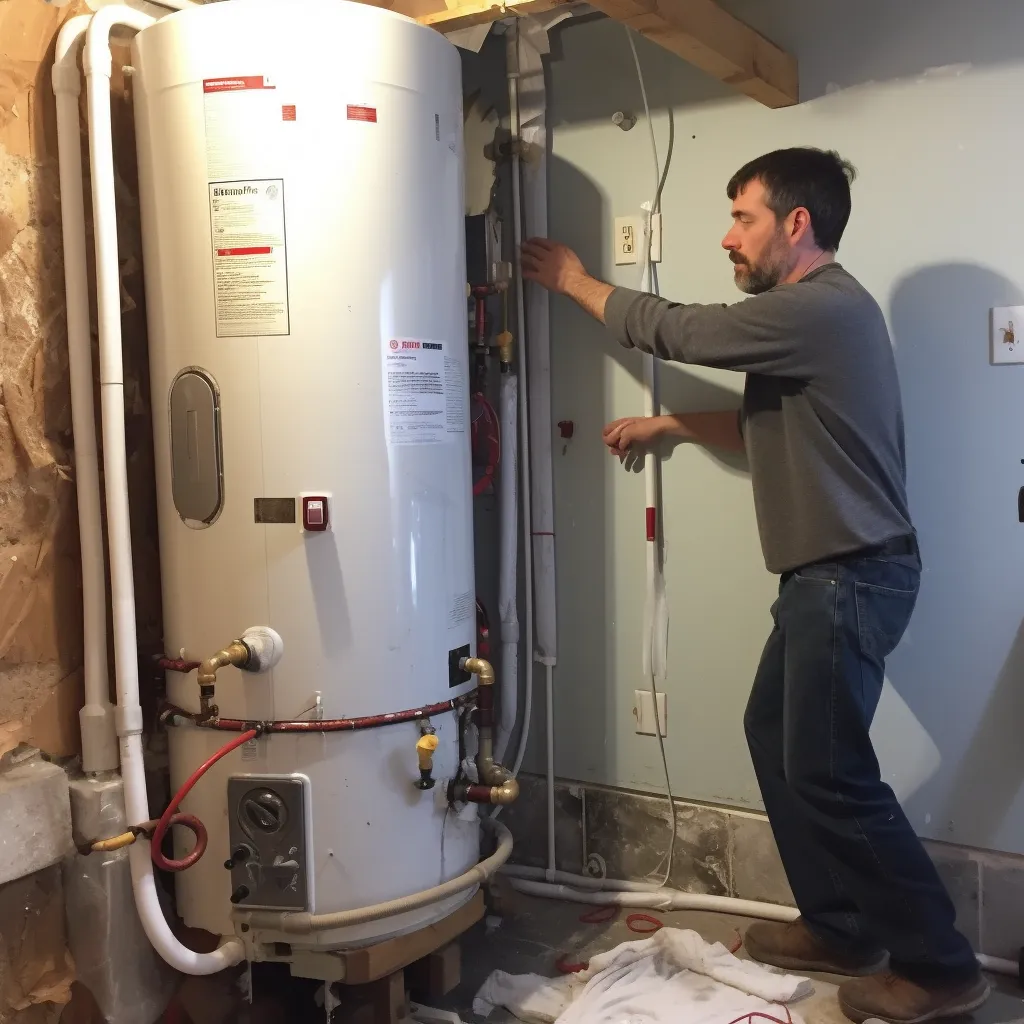
Common storage tank water heater maintenance issues
Storage tank water heaters can also come with a few (common) maintenance issues:
Leaking tank: Regular inspection is crucial to identify and address any leaks promptly, preventing water damage and costly repairs.
Corrosion: Regular maintenance and inspection help detect and address corrosion, ensuring the efficiency and performance of the water heater.
Sediment buildup: Flushing the tank periodically removes sediment buildup, maintaining optimal heating efficiency and preventing damage to plumbing fixtures.
Incorrect installation: Professional installation by a plumber or technician ensures proper safety measures are followed, minimizing the risk of gas leaks or electrical shorts.

Common tankless water heater maintenance issues
Tankless water heaters are not immune to maintenance issues either:
Sediment buildup: Regular maintenance and descaling procedures are necessary to prevent sediment buildup, maintain efficiency, and avoid potential damage in tankless water heaters.
Hard water issues: Addressing scale buildup caused by hard water through recommended descaling procedures is crucial to ensure optimal performance and extend the lifespan of tankless water heaters.
Electrical capacity: Tankless water heaters require a higher electrical capacity compared to traditional heaters. It is important to ensure that your electrical system can handle the increased demand to avoid electrical issues.
Gas line requirements: Tankless water heaters typically require a larger gas line for proper operation. It is essential to ensure the gas line is installed securely and free from leaks to maintain functionality and safety.
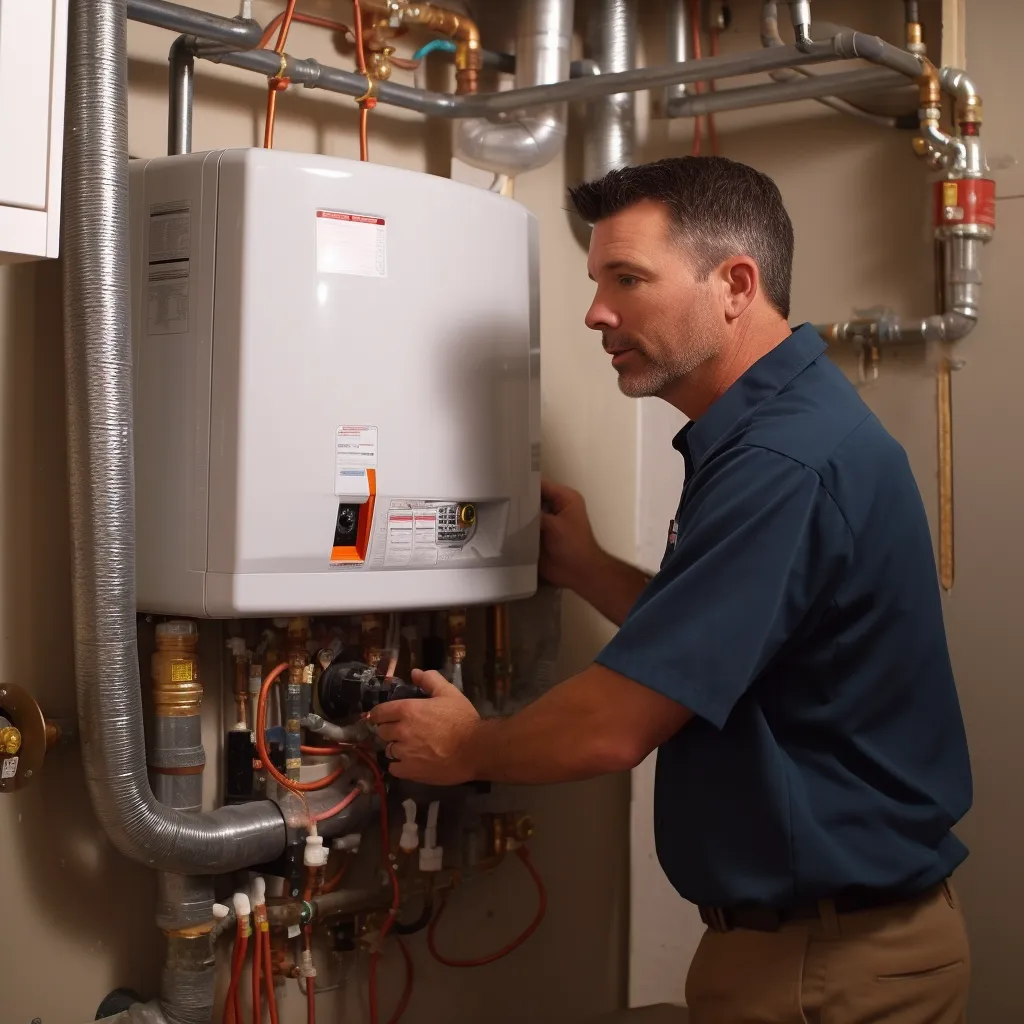
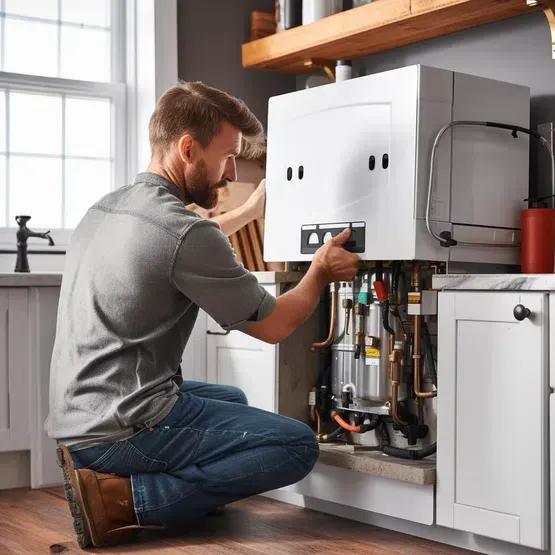
What is the lifespan of a tank water heater?
The average lifespan of a tank water heater is 8-12 years, although this can vary depending on factors such as usage, water quality, and maintenance. It's important to be aware of signs that may indicate the end of its lifespan, such as rust-colored water, leaks, lower temperature, or strange sounds. If you notice any of these signs, it's recommended to contact a professional to assess the situation and determine if a replacement is necessary.

What is the lifespan
of a tankless water heater?
Tankless water heaters are a cost-effective option for long-term use, offering numerous benefits. With proper maintenance, these units can have an average lifespan of 15-20 years, making them a durable and reliable choice. Their popularity is increasing due to their energy efficiency, on-demand hot water, and compact design. As technology continues to advance, we can expect further improvements in their performance and efficiency, making them an even more attractive option for homeowners.

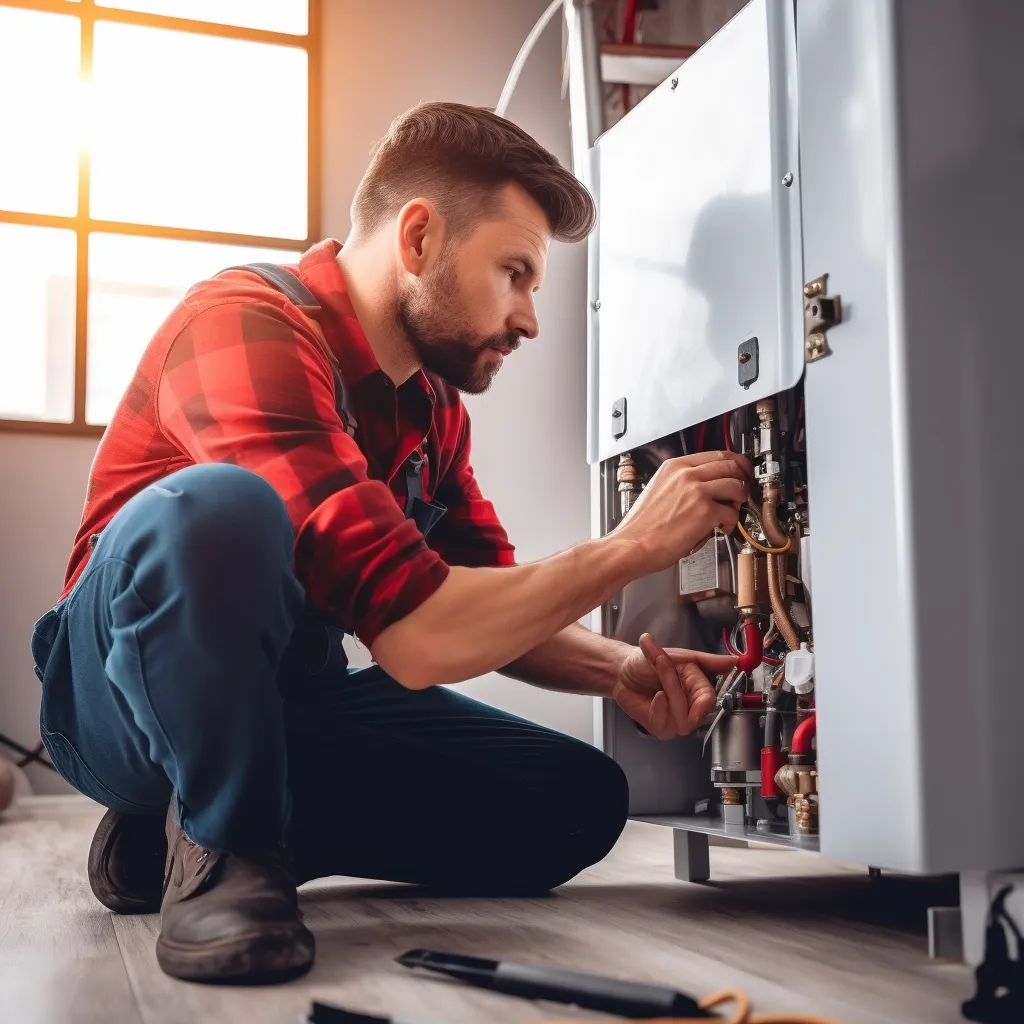
Gas vs electric water heaters
When choosing a water heater, you have the option of selecting between gas or electric models. Gas water heaters are known for their faster water heating capabilities and lower operating costs. However, they require maintenance and the availability of a gas line. On the other hand, electric water heaters are easier to install but may have higher operating expenses and slower heating times compared to gas models. The choice between gas and electric ultimately depends on your specific needs, preferences, and the availability of gas connections in your area.
How to decide if a tankless or a tank water heater
is right for you
To determine whether a tankless or tank water heater is the best fit for your needs, consider the following factors:

Cost: Tankless water heaters generally have a higher upfront cost, including installation expenses. Evaluate your budget and long-term cost savings to determine the most cost-effective option.
Hot water demand: Assess your household's hot water usage. Tankless water heaters provide a continuous supply of hot water, making them ideal for homes with high demand. Tank water heaters may be suitable for lower usage and intermittent hot water needs.
Energy efficiency: Compare the energy efficiency ratings of both types of water heaters. Tankless models are known for their energy-saving benefits, while tank water heaters may have lower efficiency due to standby heat loss.
Climate considerations: Tankless water heaters perform well in extreme temperatures, delivering consistent hot water. Tank water heaters are more common in milder climates where heat retention is less of a concern.
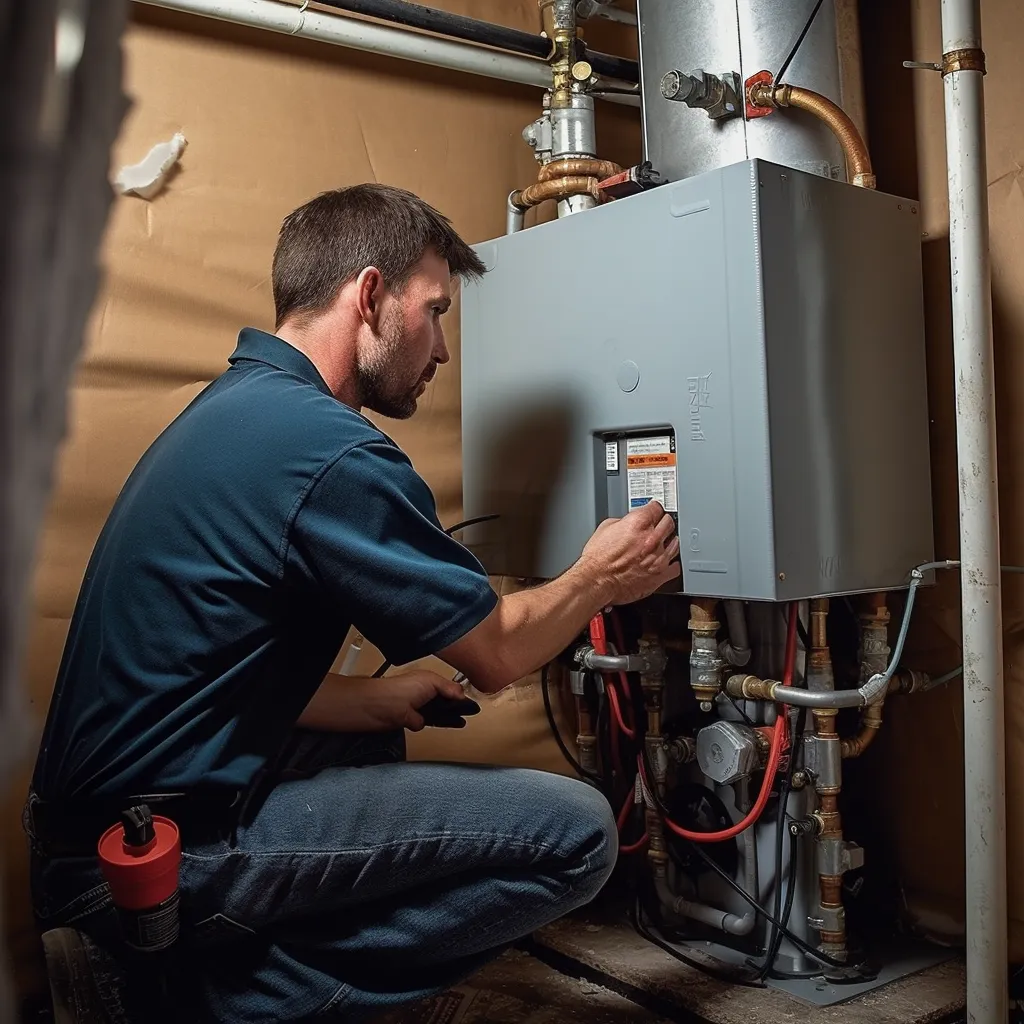
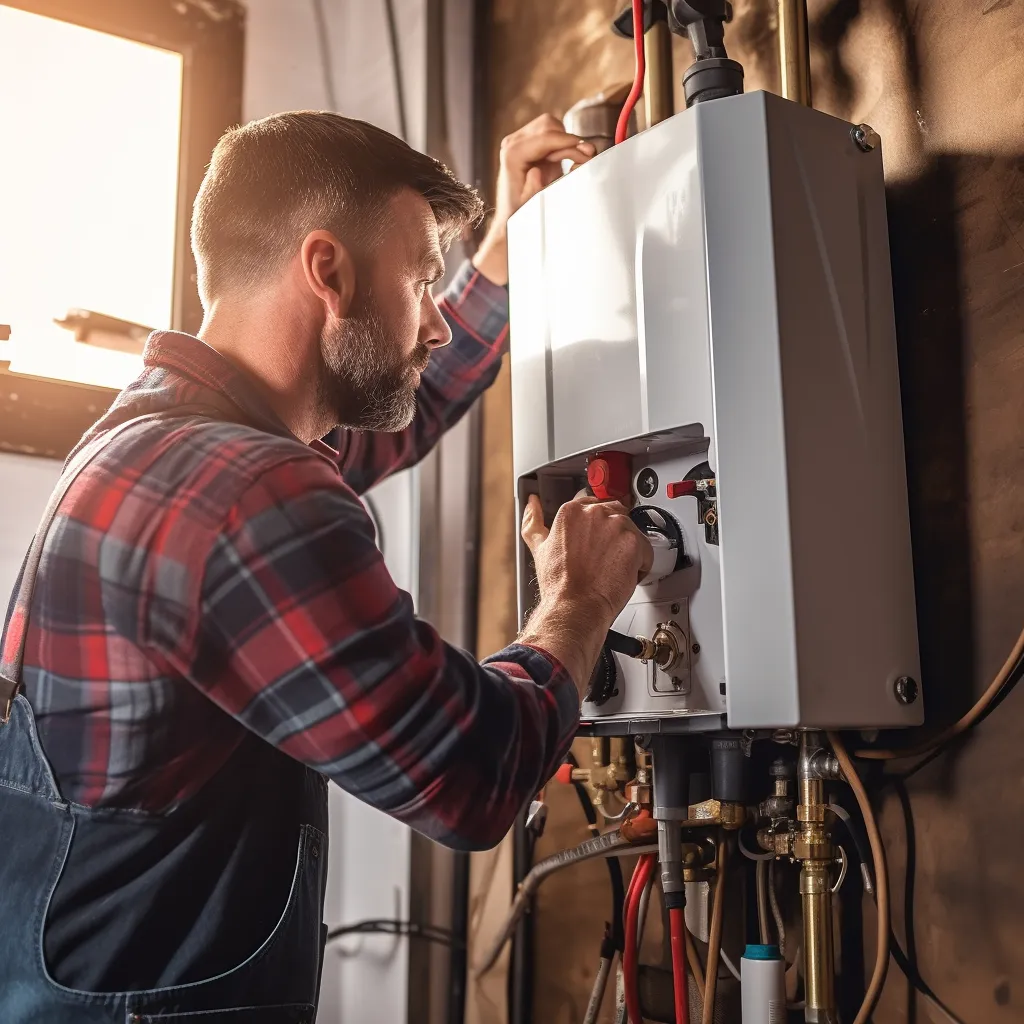
Is it important to hire a licensed professional?
Hiring a licensed professional for water heater installation is highly recommended to ensure a safe and efficient setup. When it comes to water heater installation, it's always best to leave the job to qualified professionals. Their expertise and knowledge ensure a successful installation that meets safety standards and maximizes the performance of your water heater.

Researching tankless vs tank water heaters
is important
Choosing the right water heater for your home involves considering factors such as your hot water needs, budget, installation requirements, energy efficiency, and space availability. Assess your household's hot water demand, taking into account the number of bathrooms and fixtures that require hot water. Look for energy-efficient models that can help reduce utility bills and have a positive environmental impact. Consider the fuel type available in your area, whether it's gas, electricity, or solar, and choose a water heater accordingly. Evaluate the space available for installation, as tankless water heaters require less space than traditional tank models. Take your budget into consideration, comparing upfront costs, operating costs, and potential long-term savings. Consulting with a professional plumber can provide expert advice tailored to your specific needs and ensure a successful water heater selection and installation.
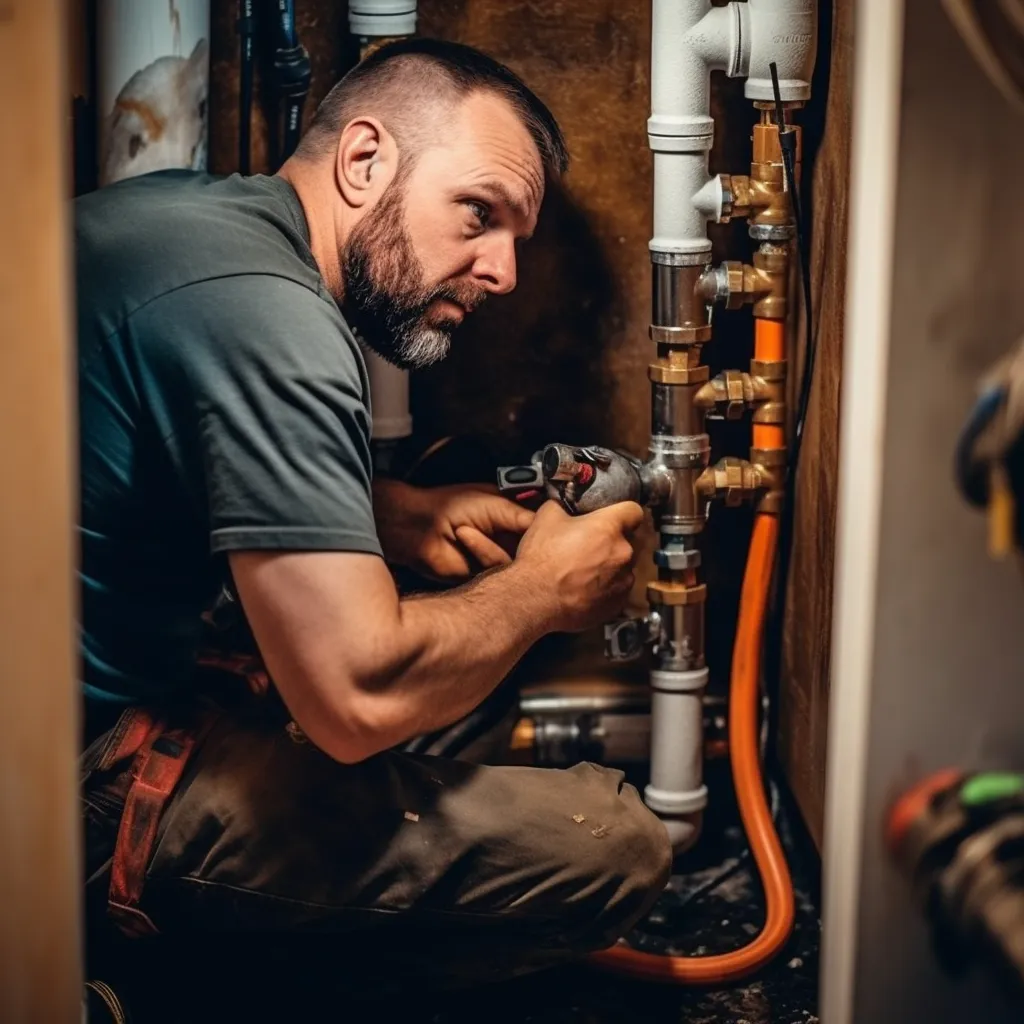
Contact Us
GET IN FULL TOUCH
PHONE: (267) 715-3102
EMAIL:
tyler@waterheatersphiladelphia.com
Water Heaters Philadelphia
Philadelphia, PA 19147
